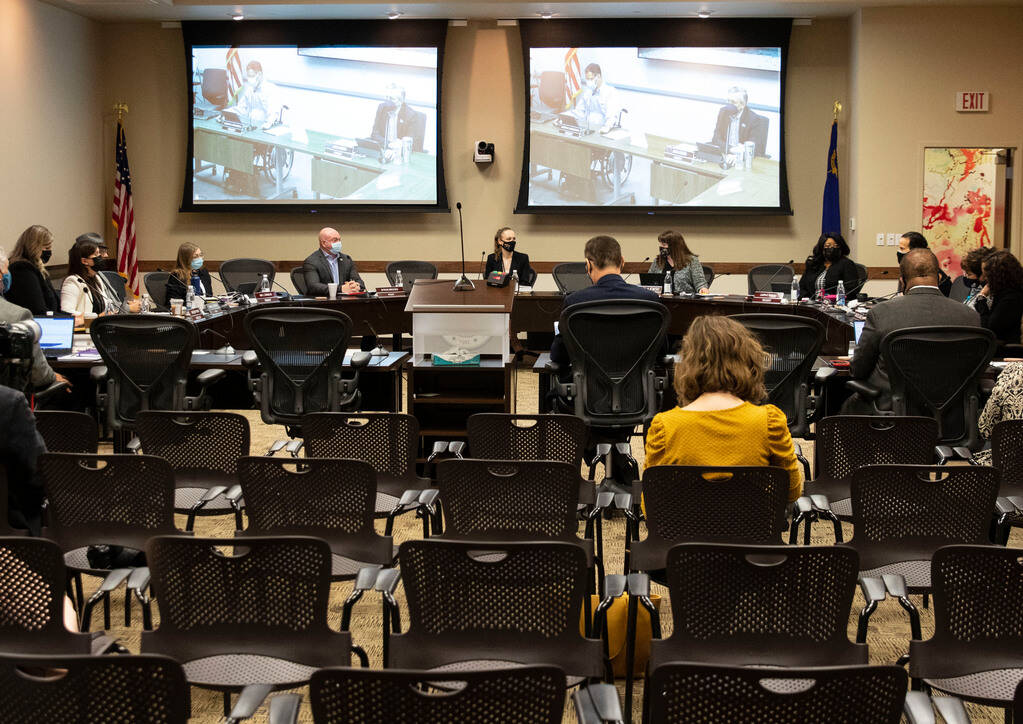Nevada to see fewer regents, shortened term-limits
A higher education reform signed into law by Gov. Joe Lombardo on Tuesday will shorten the terms of those elected to the Board of Regents, in addition to shrinking the board’s size.
Assembly Bill 118 reduces the board overseeing the Nevada System of Higher Education from 13 members to nine, in addition to establishing four-year terms for regents. Five regents will be elected in the 2028 general election, and then four more in 2032.
The bill also carves out nine districts from which regents must be a resident to run.
Dale Erquiaga, who has served as acting chancellor for the system since July 2022, was unavailable to be interviewed, according to his assistant.
But Board Chair Byron Brooks is not a fan of the reform, which he said does nothing to address what he felt are the real challenges facing Nevada colleges and universities: access to education, faculty retention and enrollment.
“It seems to me, it addresses a political ideology or self-serving agenda, rather than the improvement of the process that would enable community members who are interested in higher education of achieving whatever goal they may have for themselves,” Brooks said.
The Nevada university system ranked 42nd in return on investment, according to an analysis by the Foundation for Research and Equal Opportunity, a public policy think tank.
Brooks also criticized the bill’s sponsor, Assemblyman Howard Watts, D-Las Vegas, for not clarifying the need for the bill beyond reducing regents’ term limits to align with other elected officials in Nevada.
“For some reason, some of our legislators believe that they might be able to affect the governance of higher education better than those who are actually involved with it on — what I would consider to be — a daily basis,” Brooks said.
But Watts said that the reform was spurred by what he saw as personnel issues and a negative atmosphere surrounding the board of regents, noting the departure of former chancellor Melody Rose, who resigned her position last year after only 19 months into her four-year contract.
Rose filed a complaint alleging a hostile work environment within the higher education system.
Watts also said he believes a smaller board will be more productive, collaborative and decisive.
“I hope that a streamlined Board of Regents could bring stability to the system overall and make sure that everybody feels like their input is being heard,” he said.
With four-year terms, regents would have to run for re-election three times, instead of twice, to reach their term limit, something Watts said will make them more accountable to voters.
Contact Christian Casale at ccasale@reviewjournal.com or 702-380-4551. Follow @vanityhack on Twitter.













